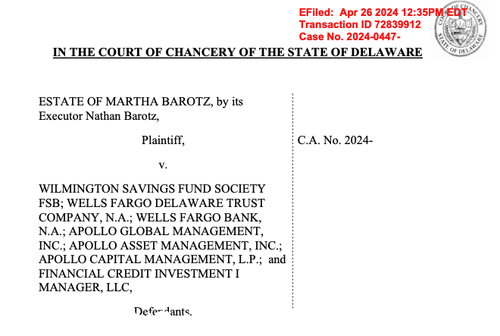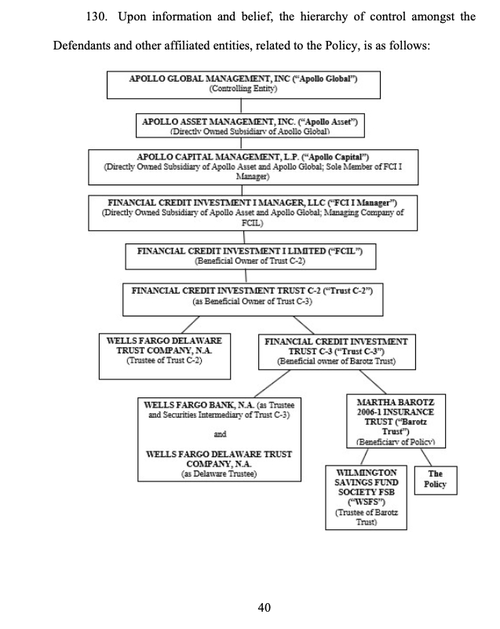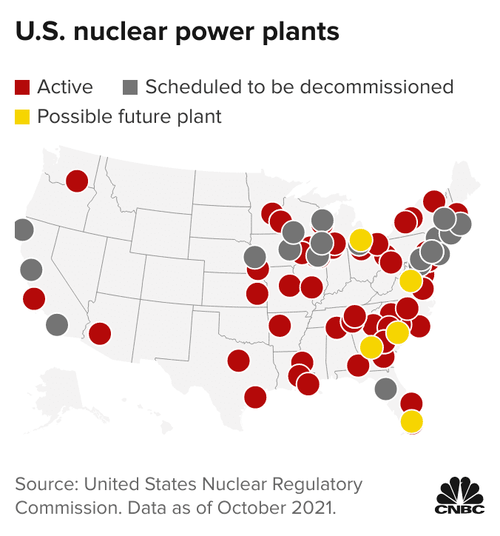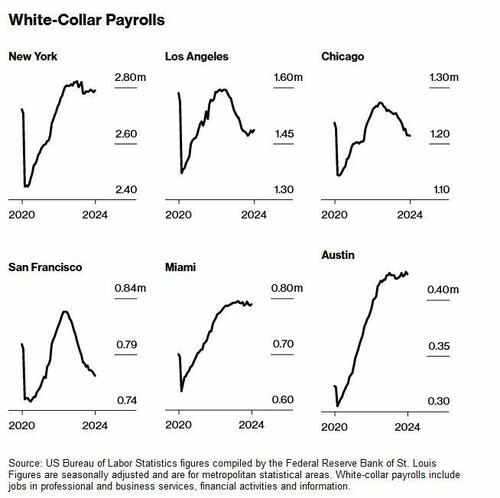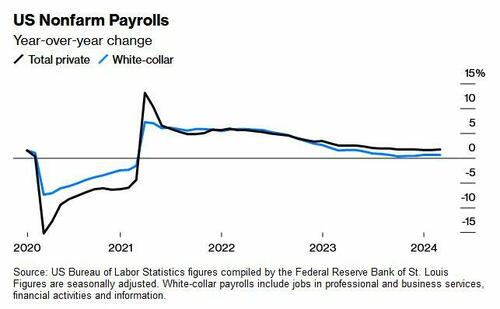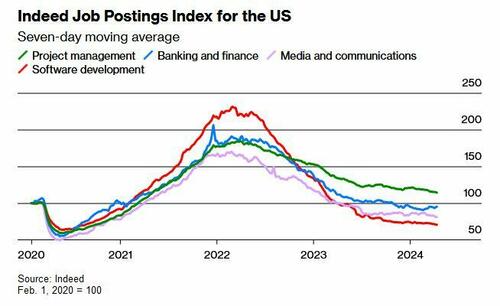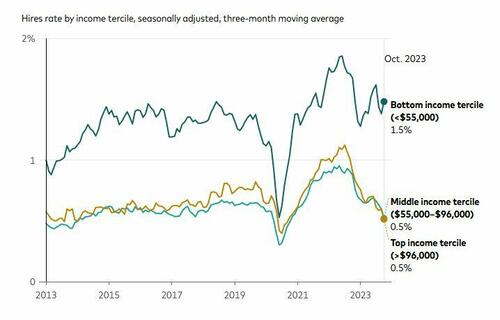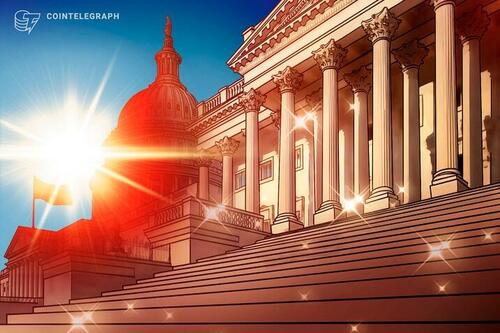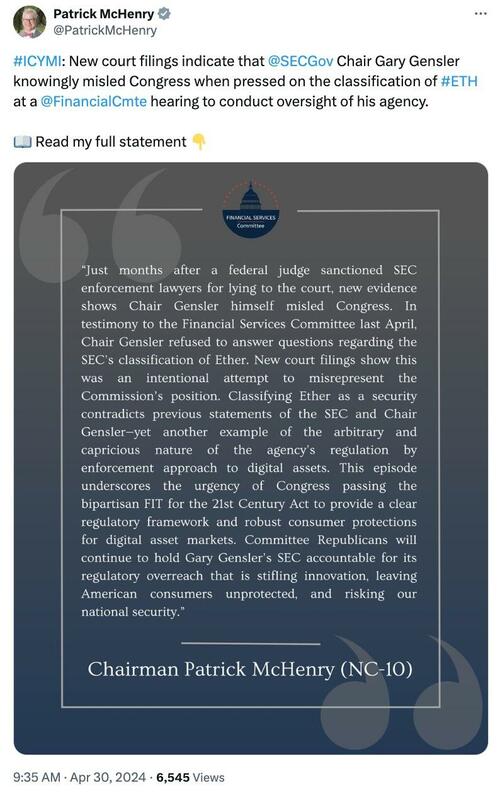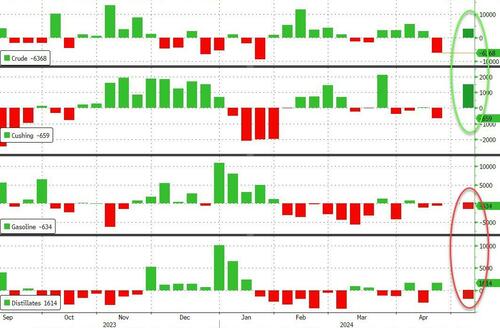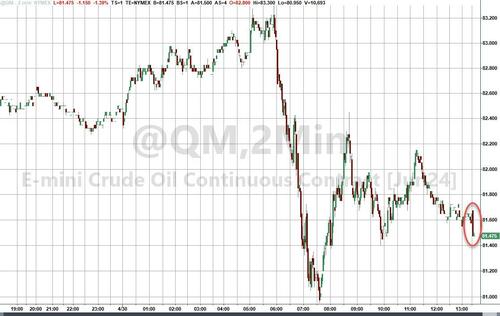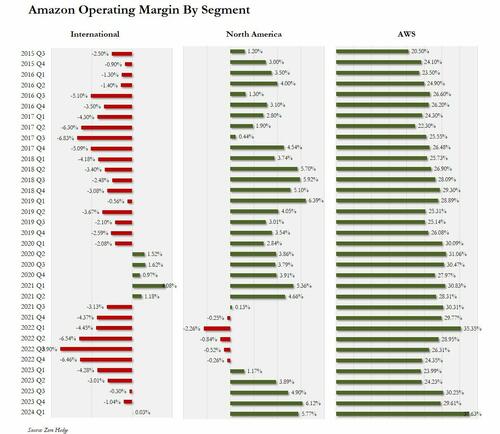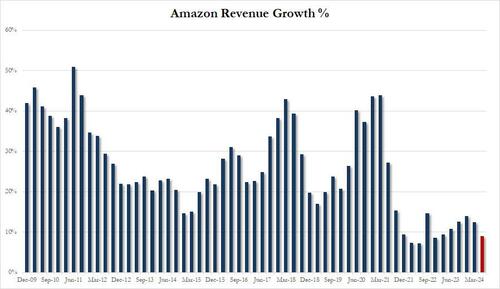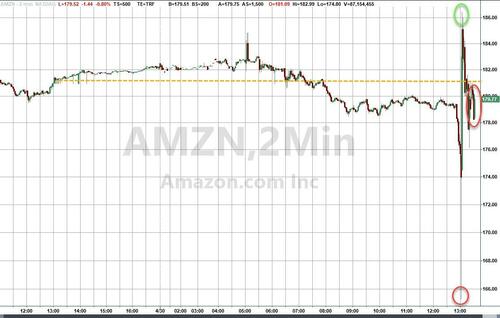Authored by Brandon Smith via Alt-Market.us,
World reserve status allows for amazing latitude in terms of monetary policy. The Federal Reserve understands that there is constant demand for dollars overseas as a means to more easily import and export goods. The dollar’s petro-status also makes it essential for trading oil globally. This means that the central bank of the US has been able to create fiat currency from thin air to a far higher degree than any other central bank on the planet while avoiding the immediate effects of hyperinflation.

Much of that cash as well as dollar denominated debt (physical and digital) ends up in the coffers of foreign central banks, international banks and investment firms where it is held as a hedge or used to adjust the exchange rates of other currencies for trade advantage. As much as one-half of the value of all U.S. currency is estimated to be circulating abroad.
World reserve status along with various debt instruments allowed the US government and the Fed to create tens of trillions of dollars in new currency after the 2008 credit crash, all while keeping inflation under control (sort of). The problem is that this system of stowing dollars overseas only lasts so long and eventually the consequences of overprinting come home to roost.
The Bretton Woods Agreement of 1944 established the framework for the rise of the US dollar and while the benefits are obvious, especially for the banks, there are numerous costs involved. Think of world reserve status as a “deal with the devil” – You get the fame, you get the fortune, you get the hot girlfriend and the sweet car, but one day the devil is coming to collect and when he does he’s going to take EVERYTHING, including your soul.
Unfortunately, I suspect the time is coming soon for the US and it may be in the form of a brand new Bretton Woods-like system that removes the dollar as world reserve and replaces it with a new digital basket structure. Global banks are essentially admitting to the plan for a complete overhaul of the dollar-based financial world and the creation of a CBDC-centric system built on “unified ledgers.”
There have been three recent developments all announced in succession that suggest the dollar’s replacement is imminent (before this decade is over).
The IMF’s XC Model – A Centralized Policy For CBDCs
The IMF’s XC platform was released as a theoretical model in November of 2022 and matches closely with their long discussed concept of a global Special Drawing Rights basket, only in this case it would tie together all CBDCs under one umbrella along with “legacy currencies.”
It’s promoted as a policy structure to make cross-border payments in CBDCs “easier” and this model is focused primarily on currency exchanges between governments and central banks. Of course, it places the IMF as the middle-man in terms of controlling the flow of digital transactions. The IMF suggests that the XC platform would make the transition from legacy currencies to CBDCs less complicated for the various nations involved.
As the IMF noted in a discussion on centralized ledgers in 2023:
“We could end up in a world where we have connected entities to some degree, but some entities and some countries that are excluded. And as a global and multilateral institution, we’re sort of aiming to, you know, provide a basic connectivity, a basic set of rules and governance that is truly multilateral and inclusive. So, I think that is—the ambition is to aim for innovation that is compatible with policy goals and that is inclusive relative to the broad membership of, say, the IMF.”
To translate, decentralized systems are bad. “Inclusivity” (collectivism) is good. And the IMF wants to work in tandem with other globalist institutions to be the facilitators (controllers) of that economic collectivism.
Bank For International Settlements Unified Ledger
Not more than a day after the IMF announced their XC platform goals, the BIS announced their plans for a unified ledger for all CBDCs called the ‘BIS Universal Ledger.’ The BIS specifically notes that the project is meant to “inspire trust in central bank digital currencies” while “overcoming the fragmentation of current tokenization efforts.”
While the IMF is focused on international policy control, the BIS is pursuing the technical aspects for the globalization of CBDCs. They make it clear in their white papers that a cashless society is in fact the end game and that digital transactions need to be monitored by a centralized entity in order to keep money “secure.” As the BIS argues in their extensive overview of Unified Ledgers:
“Today, the monetary system stands at the cusp of another major leap. Following dematerialisation and digitalisation, the key development is tokenisation – the process of representing claims digitally on a programmable platform. This can be seen as the next logical step in digital recordkeeping and asset transfer.”
“…The blueprint envisages these elements being brought together in a new type of financial market infrastructure (FMI) – a “unified ledger”. The full benefits of tokenisation could be harnessed in a unified ledger due to the settlement finality that comes from central bank money residing in the same venue as other claims. Leveraging trust in the central bank, a shared venue of this kind has great potential to enhance the monetary and financial system.
There are three major assertions made by the BIS in their program – First, the digitization of money is unavoidable and cash is going to disappear primarily because it makes moving money easier. Second, decentralized payment methods are unacceptable because they are “risky” and only central banks are qualified and “trustworthy” enough to mediate the exchange of money. Third, the use of Unified Ledgers is largely designed to track and trace and even investigate all CBDC transactions, for the public good, of course.
The BIS system deals far more in the realm of private transactions than the IMF example. It is the technical foundation for the centralization of all CBDCs, governed in part by the BIS and the IMF, and it is scheduled to go into wider use in the next two years. There are already multiple nations testing the BIS ledger today. It’s important to understand that whoever acts as the middle-man in the process of the global exchange of money is going to have all the power, over governments and over the populace.
If every movement of wealth is monitored, from the shift of billions between governments to the payment of a few dollars from an individual to a retailer, then every aspect of trade can be throttled on the whims of the observer.
SWIFT Cross Border Project – Another Way To Control The Behavior Of Countries
As we’ve seen with the attempt to use the SWIFT payment network as a bludgeon against Russia, there is an ulterior motive for globalists to have a high speed large scale monetary transaction hub. Again, this is all about centralization, and whoever controls the hub has the means to control trade…to a point.
Locking Russia out of SWIFT has done minimal damage to their economy exactly because there are alternative methods for transferring money to keep the flow of trade running. However, under a CBDC based global monetary umbrella, it would be impossible for any country to work outside the boundaries. It’s not only about the ease of shutting a nation out of the network, it’s also about having the power to immediately block the transfer of funds on the receiving end of the exchange.
Meaning, any funds from any Russian source could be tracked and cut off before they are allowed to get into the hands of, say, a recipient in China or India. Once all governments are completely under the thumb of a centralized monetary system, a centralized ledger and a centralized exchange hub, they will never be able to rebel and this control will trickle down to the general population.
I would also remind readers that the majority of nations are going right along with this program. China is most eager to join the global currency scheme. Russia is still part of the BIS, but their involvement in CBDCs is still unclear. The point is, don’t expect the BRICS to counteract the new monetary order, it’s not going to happen.
CBDCs Automatically Require The End Of The Dollar As World Reserve
So what do all these globalist projects with CBDCs have to do with the dollar and its venerated position as the world reserve currency? The bottom line is this: A unified CBDC system completely excludes the need or use-case for a world reserve currency. The Unified Ledger model takes all CBDCs and homogenizes them into a puddle of liquidity, each CBDC growing similar in characteristics over a short period of time.
The advantages of using the dollar disappear in this scenario and the value of currencies becomes relative to the middle-man. In other words, the IMF, BIS and other related institutions dictate the properties of CBDCs and thus there is no distinguishing aspect of any CBDC that makes one more valuable than the others.
Sure, some countries might be able to separate their currency to a point with superior production or superior technology, but the old model of having a big military as a way to ensure Forex and trade favors is dead. Eventually the globalists will make two predictable arguments:
1) “A world reserve currency under the control of one nation is unfair and we as global bankers need to make the system “more equal.””
2) “Why have a reserve currency at all when all transactions are moderated under our ledger anyway? The dollar is no longer any more easy to use for international trade than any other CBDC, right?”
Finally, the dollar has to die because it’s an integral part of the “old world” of material exchange. The globalists desire a cashless society because it is an easily controlled society. Think of the covid lockdowns and the attempts at vaccine passports – If they had a cashless system in place at that time, they would have gotten everything they wanted. Refuse to take the experimental vaccine? We’ll just shut off your digital accounts and you will starve.
This was even partially attempted (think Canadian trucker protests), but with physical cash there’s always a way around a digital embargo. Without physical cash you have no other options unless you plan to live completely off the land and barter goods and services (a way of life most people in the first world need a lot of time to get used to).
I believe that a sizable percentage of the American populace will go to war before they accept a cashless society, but in the meantime, there is still the inevitability of a dollar crash to deal with. Globalist organizations are pushing CBDCs to go active VERY quickly, and as this happens along with the centralized ledgers the traditional dollar will swiftly lose favor. This means that those trillions in greenbacks held overseas will start flooding back into America all at once causing an inflationary disaster well beyond what we are witnessing today.
As much as the economy has benefited from world reserve status in the past it will suffer equally as the dollar fades, only to be replaced by a framework even worse than fiat. That is, unless there’s a dramatic upheaval that removes the globalist order from the equation entirely…
* * *
If you would like to support the work that Alt-Market does while also receiving content on advanced tactics for defeating the globalist agenda, subscribe to our exclusive newsletter The Wild Bunch Dispatch. Learn more about it HERE.

